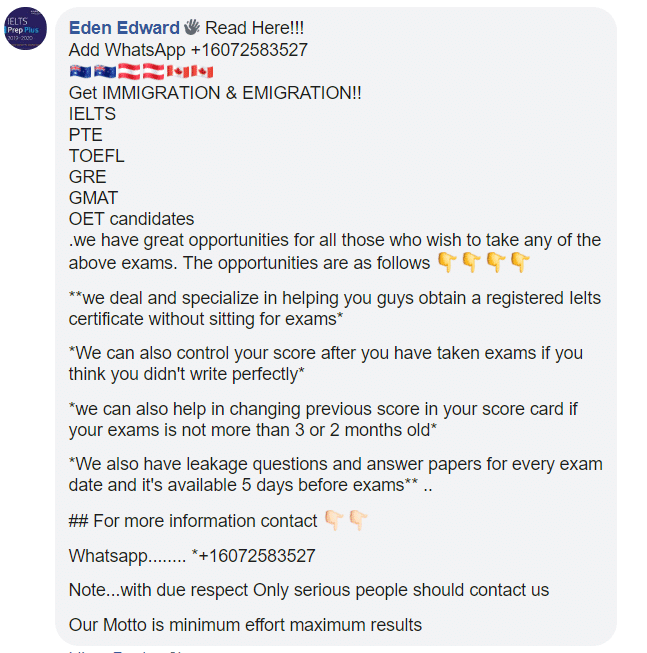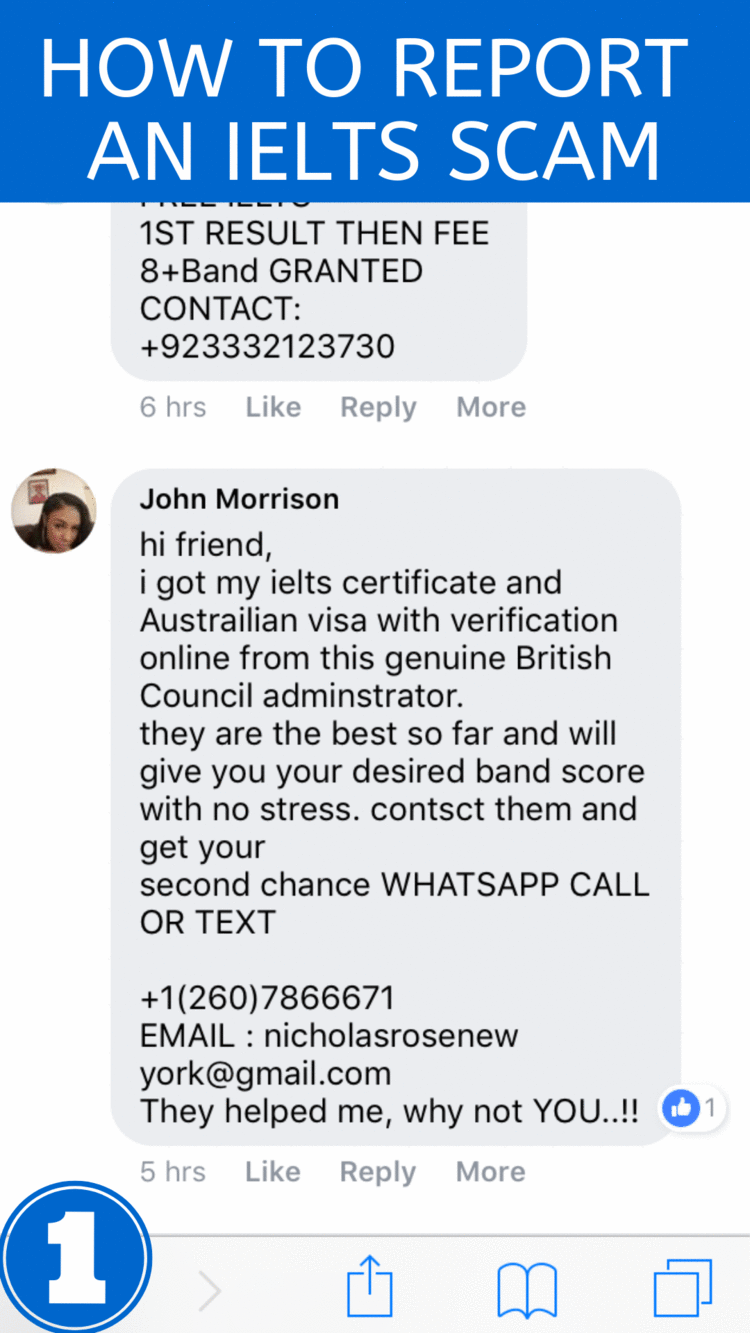It’s no secret that IELTS preparation tools and practice papers are in high demand, with more than 3 million people taking the exam every year. This article will outline the four steps you must take to find and use helpful IELTS tools on social media.
Do your research
When you begin preparing for your exam, it is natural to want to surround yourself with everything IELTS-related. Some people do this by joining preparation groups on Facebook, subscribing to YouTube channels or joining group chats on WhatsApp.
In my experience, this is the worst way of starting your IELTS preparation.
Before you even think about using social media for IELTS preparation, you should have a very strong understanding of the exam and exactly what is required of you.
It is up to you to find out exactly what the exam will look like, how you will be graded and how to answer each question type.
For help with this, take a look at our IELTS Preparation Guide.
If you skip this important process, you will be thrown into a massive online community of people with different weaknesses, experiences and opinions to you.
By doing your research, you will have the focus and confidence you need to use IELTS materials online. There is a lot of inaccurate information out there and you need to be able to identify it when you see it!
Follow sources you can trust
When you understand the exam format and how you should approach it, your next step is to use social media to find a trustworthy teacher that can help you improve your IELTS skills.
It’s important that your teacher, tutor or course is trustworthy. The reason being that there are thousands of people – both online and in person – that pretend to be IELTS tutors in the hopes of making some cash.
This is becoming an increasing problem for IELTS students, making it very difficult to identify the difference between a real tutor and a scam artist.
It is your responsibility to know a trustworthy source when you see one. Chris briefly explains how you can identify fraudulent ‘teachers’ below:
To get you started, I’ll include a list of trustworthy teachers whose content is original, honest and free to use:
Obviously! We’ve helped more students get a Band 7 or higher than any other online course or physical tutor. You may think I’m being biased, but our Success Stories claim otherwise!
Simon’s blog and social media accounts are accurate, straightforward and are presented in a very concise and digestible manner.
Click here for a more detailed approach to identifying the difference between an IELTS teacher and an IELTS scam.
Be disciplined with…
The offers you accept.
If you see an offer on social media that seems too good to be true, it probably is. Don’t jeopardise your future prospects in the hopes of saving some cash. Selling, buying or sharing illegally downloaded materials (i.e. paid courses or videos) is easily traceable and could completely ruin your ability to emigrate. Is this a risk you’re willing to take?
Your phone.
While your mobile can be one of your best tools for IELTS preparation when used wisely, it’s important that you don’t allow yourself to get distracted from your studies. Otherwise, you will waste the precious time that you should have spent improving your skills.
The number of teachers you follow.
I’ve already discussed the dangers of joining too many groups on social media. In the exact same way, it is dangerous to follow too many teachers – no matter how trustworthy they may be.
My advice would be to explore the teachers that appear reliable for a small period of time. Once you have identified their teaching styles, focus on the teacher that can help you with your specific area of weakness and stick with them. Otherwise, you run the risk of overwhelming yourself with too much information or conflicting advice.
The practice papers you use.
There is an abundance of free IELTS papers all over social media, so we know that they aren’t hard to find. However, for many, it is difficult to distinguish which practice papers are fake and which ones aren’t.
It’s important that you don’t use fake papers as the questions won’t match the format of ones that will appear in your exam. As such, using them will result in an inaccurate representation of your ability.
Your expectations.
If you’re going to take part in a group, be respectful when you are asking for help or feedback. If you have enough questions to repeatedly pester a Facebook group, it’s probably time to talk to a professional.
Don’t take risks
The IELTS certificate opens up many doors and opportunities, such as the ability to emigrate or study abroad.
In my experience, this is not something that you should ever risk losing out on.
Unfortunately, this is the case for hundreds of IELTS students that try cheating their way into getting an IELTS certificate every year.
One recent trend within IELTS Facebook groups is scam artists convincing desperate test-takers that they can buy the IELTS certificate without even taking the exam.
Take a look below:
I easily found these comments on Facebook IELTS groups the day before I wrote this blog.
I won’t insult your intelligence by informing you that these are scams which will result in you losing a lot of money. However, to stop thieves stealing innocent money from innocent IELTS students, you need to do more than ignore such posts. Do your fellow pupils a favour and report them. The gif below will show you how.
Ask questions
If you’re unsure whether a teacher is reliable, feel free to ask them questions like How do I know I can trust you? or How do I know that you can help me? An honest IELTS tutor won’t take offence at this because we know it’s a smart move.
Furthermore, it’s vital that you don’t passively consume content or take things for granted. If something related to the IELTS exam doesn’t make sense to you, it is your responsibility to understand it.
Finally, remember that you’re the only person that knows what your weaknesses are. Don’t simply do what you see other people doing on Facebook.
If your IELTS preparation isn’t working and you aren’t getting the score you need, it is up to YOU to find out why.
***
I hope this article has helped you understand the steps you must take when using social media to find IELTS preparation tools.
What have your experiences using social media to find IELTS tools been like?
Let me know by joining in the conversation in the comments below. Or better yet, send me an email at chris@ieltsadvantage.com and we’ll get back to you as soon as we can.






